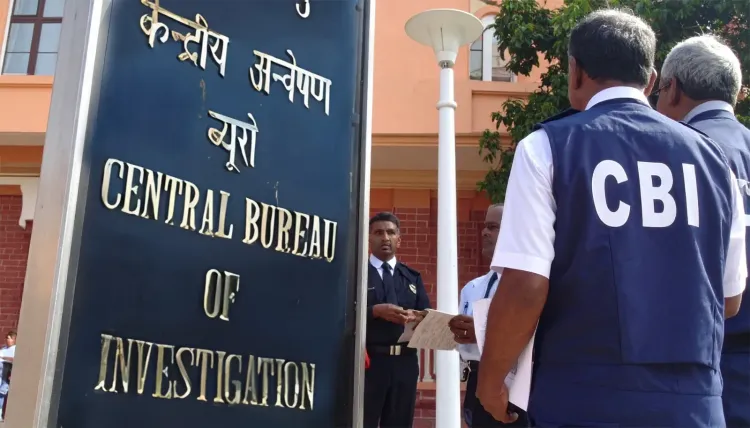Did CBI Uncover a Mule Account Network Across Seven States?

Synopsis
Key Takeaways
- CBI launched 'Operation Chakra-V' to tackle cyber fraud.
- Three individuals arrested for operating mule accounts.
- Searches conducted in seven states.
- Seizures included mobile phones and KYC papers.
- Investigation continues with potential for more arrests.
New Delhi, July 16 (NationPress) In a significant operation known as ‘Operation Chakra-V’, the Central Bureau of Investigation (CBI) executed searches in seven states on July 16 - Delhi, Bihar, Madhya Pradesh, Kerala, Punjab, Andhra Pradesh, and Rajasthan - as part of its ongoing initiative to dismantle cyber fraud networks.
The agency apprehended three individuals who played key roles in facilitating and operating mule bank accounts utilized for laundering the proceeds of cybercrimes. As reported by the CBI, the raids resulted in the confiscation of extensive incriminating materials, including mobile devices, transaction records, bank account opening documents, and KYC papers.
This latest round of arrests signifies the second phase of the investigation, following previous operations on June 26 and 27, which led to the detention of 10 suspects from 40 locations across various states. The investigation originates from a case filed on June 25 against 37 suspects, which includes bank officials, agents, and mule account holders alleged to have conspired with cybercriminals.
The mule accounts were reportedly employed to transfer and withdraw funds derived from digital arrest scams, impersonation frauds, fraudulent advertisements, and investment-related cyber frauds.
“The CBI has implemented a strategic approach in combating cybercrime, concentrating on dismantling the core components of the cybercrime infrastructure. The first component is the financial infrastructure, involving mule accounts, unauthorized payment gateways, and the broader fintech ecosystem exploited by cybercriminals,” the agency declared in its press release.
“The second component is the telecom and communication infrastructure, which includes mule SIM cards, point-of-sale (PoS) agents facilitating illegal SIM activations, and networks supplying such SIM cards,” while “the third component is the human resource network, comprising organized syndicates engaged in the recruitment and exploitation of individuals for executing cybercrimes, a phenomenon referred to as cyber slavery,” it added.
The third component often operates outside India’s borders, the agency stressed.
This operation forms part of the Government of India’s unwavering commitment to combating cybercrime and its offenders, with a strong focus on dismantling the infrastructure supporting these offenses.
The detained individuals will be presented before the relevant court.
The investigation is ongoing, with the CBI suggesting that more arrests and seizures may occur based on additional leads.









